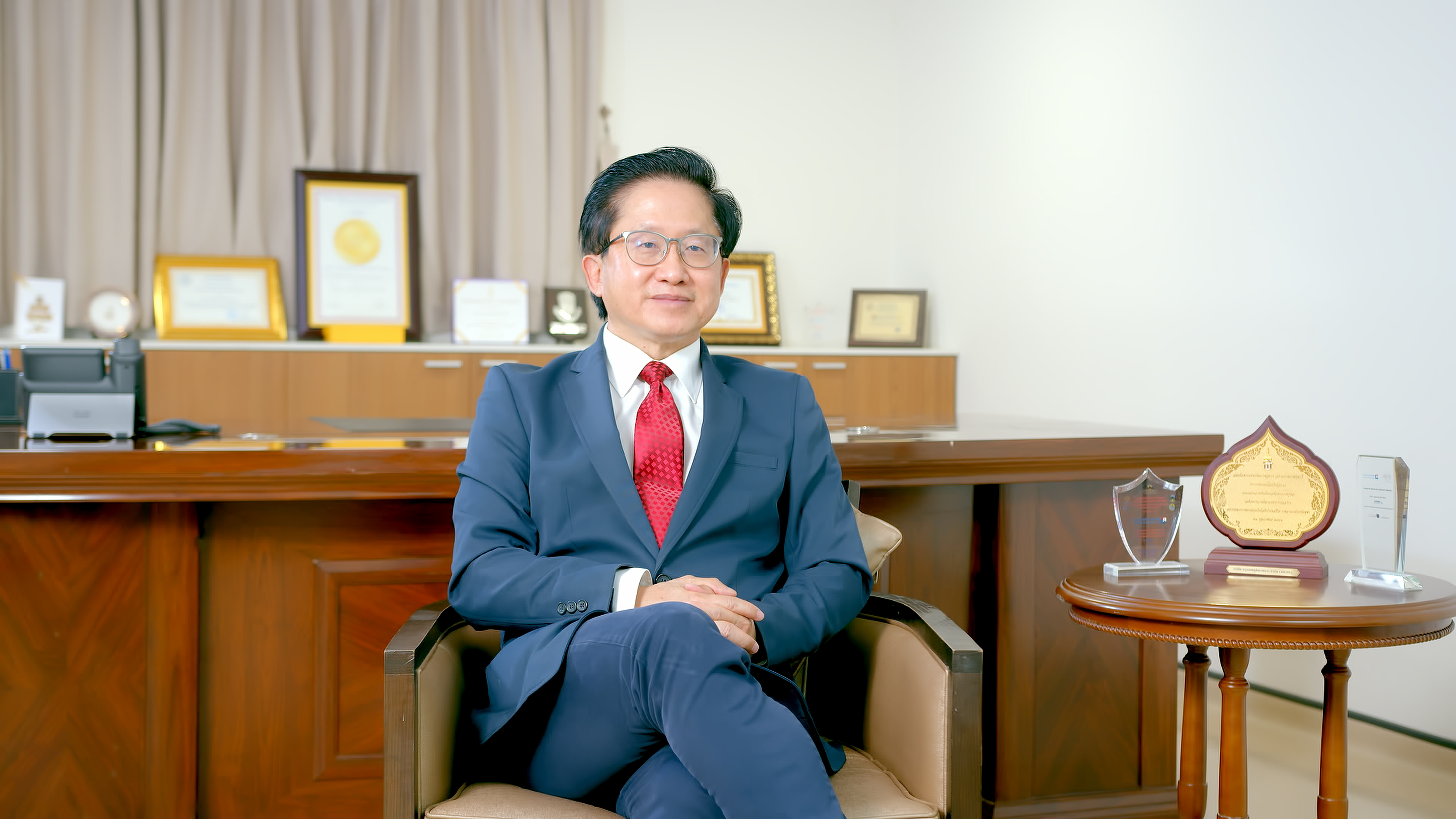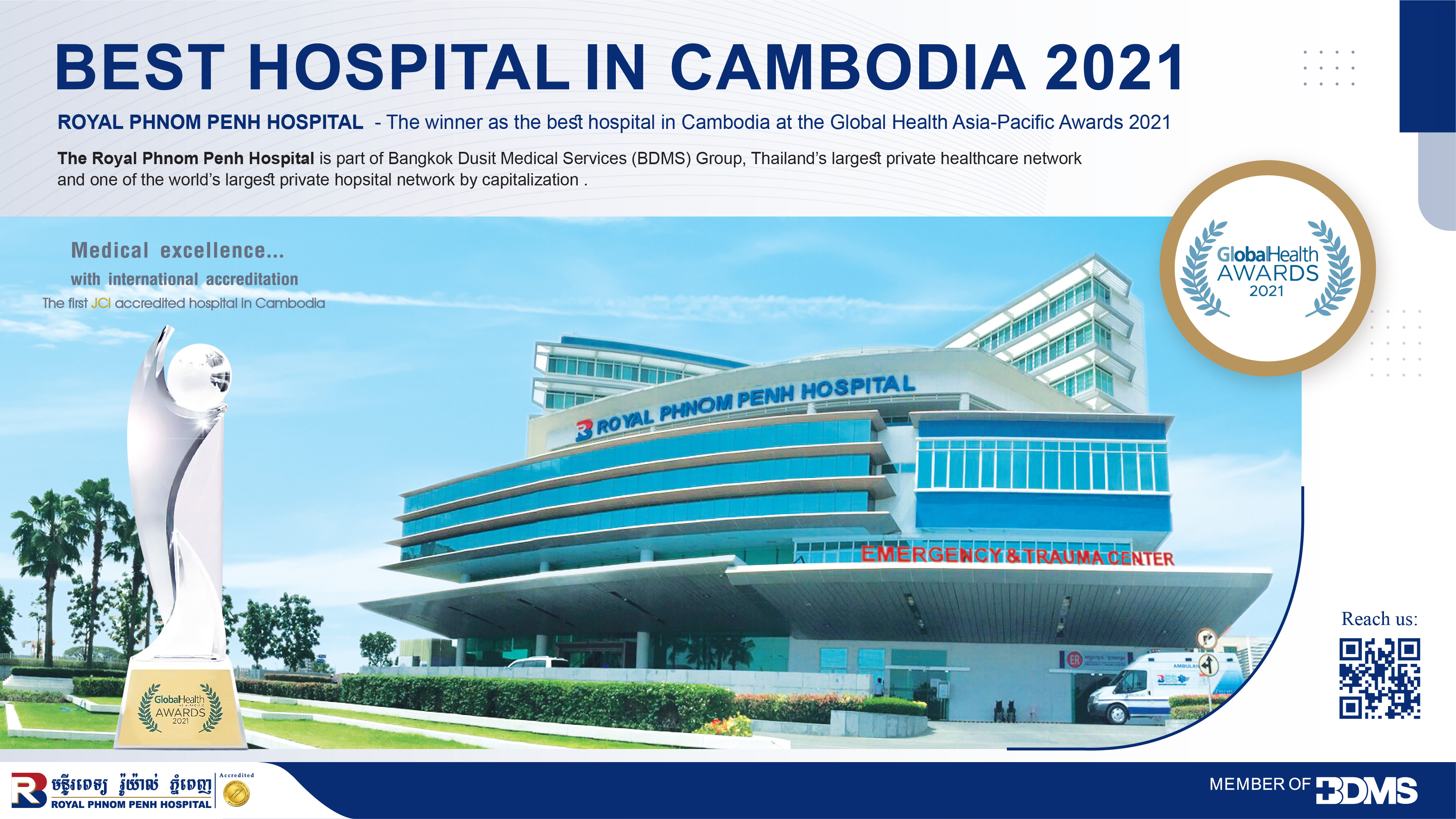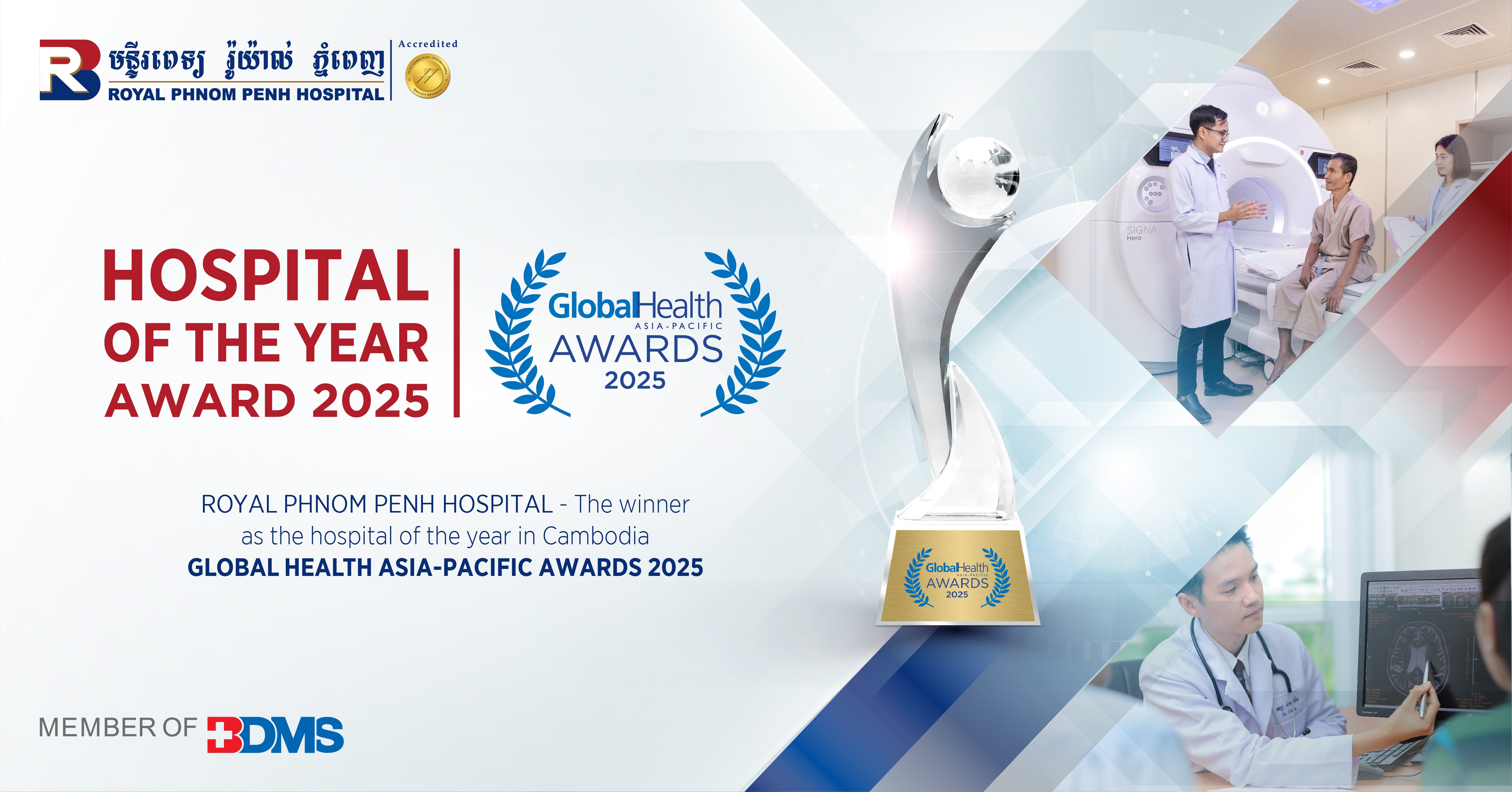WINNER AS THE BEST HOSPITAL IN CAMBODIA AT THE GLOBAL HEALTH ASIA-PACIFIC AWARDS 2021
Royal Phnom Penh Hospital: The gold-standard for hospitals in Cambodia

Narintara Boonjongcharoen M.D., Hospital Director
STANDING in the middle of the CBD is one of the best, if not the top, hospital in the entire Kingdom of Cambodia: Royal Phnom Penh Hospital.
Since it was established seven years ago, Royal Phnom Penh Hospital remains unmatched among the many medical institutions in Cambodia in terms of reliability, efficiency and quality of care.
This year, Royal Phnom Penh Hospital was named “Best Hospital in Cambodia” by the Malaysia-based Global Health and Travel International Agency. The agency cited the hospital’s high standard of care and excellence in fighting the COVID-19 pandemic.
Last year, Royal Phnom Penh Hospital became the first private hospital in Cambodia to accept inter¬national COVID-19 patients.
The Royal Phnom Penh Hospital is the only Joint Commission International (JCI) – accredited hospital in the entire country. In Southeast Asia, only a few hospitals have received the same accreditation.
According to Hospital Director Narintara Boonjongcharoen, Royal Phnom Penh Hospital has been working closely with JCI to maintain the standard and improvement of care since June 2017.
“We have been working closely with the JCI and our network hospitals in the BDMS Group to maintain international standards of care for patients and their families,” he said.
“The hospital has differentiated itself with high, accredited international standards of care by working with the Joint Commission International year-round and getting an accreditation every three years. We care for patient experience, patient and family rights and everything is working around the patient as a patient-centred care model,” the hospital director added.
The hospital provides a wide range of acute care services in internal medicine, surgery, pediatrics and obstetrics-gynecology. Its sub-specialties include emergency medicine, orthopedics-sport medicine, trauma, burn, gastroenterology, urology, nephrology, neurology, cardiology and cardiac surgery.
The hospital has the only State Secretariat of Civil Aviation-approved heliport for year-round quick helicopter patient transfer.
The hospital’s excellence extends to its treatment of doctors and other medical staff.
Currently, the hospital employs around 300 medical, nursing and support staff to take care of patients 24 hours a day, seven days a week, all year round.
“We also provide a good selection based on competency of physicians, nurses and healthcare workers with a good compensation package, working life quality, regular mandatory training, regular health check, vaccination programme and annual performance evaluations,” Narintara revealed.
To improve its operations, Royal Phnom Penh Hospital has adapted new technologies and methods.
“We have updated our Hospital Information System in 2021 to cloud server to ensure continuity of good medical record and patient care. The hospital is preparing to launch the paperless or fully digital hospital within the next five years,” Narintara disclosed.
He added that they are planning to launch the My-B Plus application later this year to empower the patient for pre-hospital and post-hospital care participation.
Royal Phnom Penh Hospital is also involved with many corporate social responsibility or CSR activities in Cambodia.
The hospital provides a yearly donation to the Cambodian Red Cross. The Royal Phnom Penh Hospital also signed a contract with Samdech Techo Voluntary Youth Doctor Association or TYDA, under which it will provide free cardiac surgery to selected Cambodians for three years.
The Royal Phnom Penh Hospital has also been recognised by the Cambodian Government for its accounting and tax compliance. “We are on top in terms of good governance for transparency, accountability and leadership,” Narintara noted.
Royal Phnom Penh Hospital is part of Bangkok Dusit Medical Services (BDMS) Group, Thailand’s largest private healthcare group and one of the top international hospital networks in the world.
BDMS Group entered Cambodia with the Royal Angkor international Hospital in Siem Reap in 2006, followed by Royal Phnom Penh Hospital eight years later.







